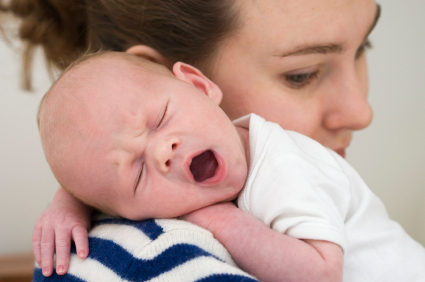Risks and Concerns Around Bedsharing

Your bed can be a great place to breastfeed, snuggle and bond with your baby while you're awake.
But when you get sleepy, it's time for your baby to move to his or her own crib.
Sleeping in the same bed as your baby - bedsharing - is not recommended for infants under 12 months. The safest place for your baby to sleep is on his or her back, in an approved crib beside your bed. Sharing a room with your baby for the first six months has been shown to reduce the risk of Sudden Infant Death Syndrome (SIDS).
Babies who share a bed or other sleep surface with adults, children or pets are at risk for SIDS and accidental death. Risks are greater when babies share a bed with adults who:
- smoke
- have recently consumed alcohol, drugs, or medications that may make them drowsy or
- don't know the baby is in the bed
Babies also face extra risks when they sleep with pillows, blankets, duvets or toys.
Adult mattresses aren't firm enough for babies, and may allow babies to roll face down. Babies who share a bed are also at greater risk for falling out of bed or getting trapped between the mattress and wall or bed frame.
Resources & Links:
HealthLink BC: Quick Tips: Getting Baby to Sleep
HealthLink BC: Safe Sleeping for Babies
Previous:Coping with Crying
-
Grandmas advice may be well-meaning, but dont listen to her if she tells you that you are spoiling your baby: Experts agree that it is impossible to spoil a newborn. Newborn babies have basic needs that must be met, and it is your job to meet them in
-
Your Babys First Car SeatAlthough parents often take their kids out of a car seat and start using regular seat belts well before the recommended age of eight years or weight of 80 pounds, putting a baby in a car seat is a no-brainer, even for first-t
-
As a part of your baby’s first health screening, a doctor or nurse takes just a tiny drop of blood from her heel — but it’s packed with important information.Here’s why the heel stick test is performed, what to expec


